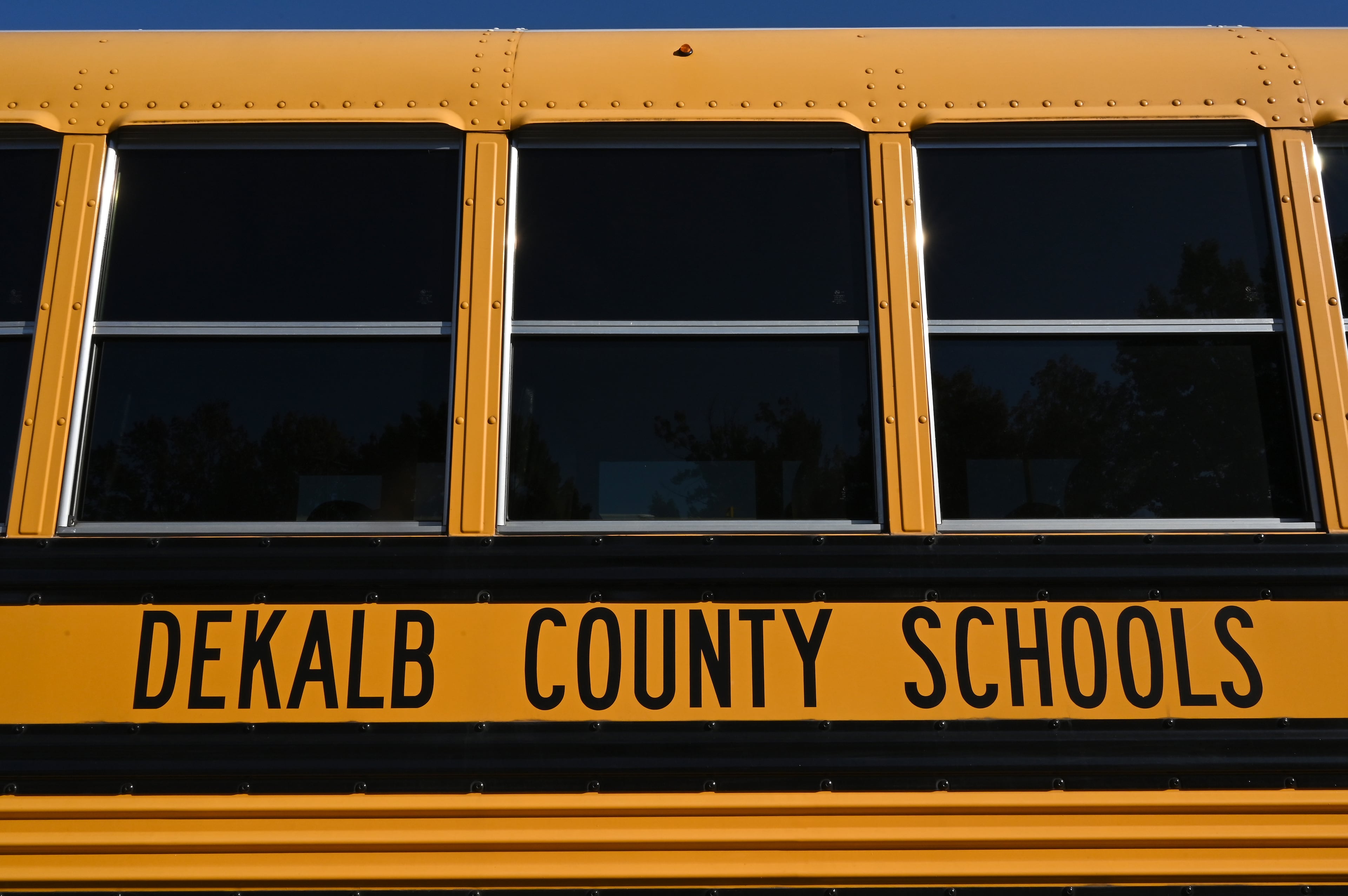Fulton to join public schools offering Montessori method
Montessori classroom:
Multi-age classroom
Freedom to move around room
Individual and small group lessons
Long, free work periods
Children learn by doing
Children free to work independently
Traditional classroom:
Single-age classroom
Seated at desks
Large group lessons
Planned activities
Teacher lectures
Teacher guides children
Montessori programs, once an option only for parents able to afford private schools, are increasingly in demand for public school students, though education officials say such a specialized approach is costly.
Georgia has at least four Montessori programs in public school districts, and Fulton County plans to join the trend by opening two new ones by fall 2016. The schools are part of a small but growing group of public systems in the U.S. to espouse the educational approach developed by Italian physician and educator Maria Montessori, which allows students to learn more independently.
Fulton’s proposal for the new Montessori schools is part of a larger plan by the state’s fourth-largest district to offer more education options in addition to the traditional public school model. Proponents of Montessori say it’s more effective at teaching children and could be used to turn around failing schools and boost achievement.
DeKalb County, a public-school Montessori pioneer that started its programs nearly 15 years ago, likes its results.
“They (Montessori) serve the students well that are enrolled in them,” said Pat Copeland, director of school choice for DeKalb County’s school system, which has Montessori programs at Briar Vista and Huntley Hills elementary schools. “They’re high-performing students. Their achievement levels are high. So it actually is the exact type of structure that helps them meet academic achievement levels.”
Education officials say these schools come at a higher cost, however, with more money needed for teacher training and “manipulatives” such as blocks and beads, and other materials. Fulton school officials say additional funding may be needed for the Montessori development, but they don’t have a projected amount.
The approach is not for every child, with many still learning better in a more structured, traditional setting, education officials say.
There are an estimated 5,000 Montessori schools in the U.S . About 500 are public or charter schools, according to the American Montessori Society. The largest number of Montessoris are at the early childhood level (2.5 to six years). Elementary is second, though there has been growing interest in establishing more middle and high school-level Montessori schools.
“Every child should have the opportunity for a quality education. And we believe Montessori is a quality education,” said Richard Ungerer, executive director of the American Montessori Society. “If they (students) can’t afford it, then they don’t have the opportunity. That’s why we’re so supportive of expanding in the public sector.”
Montessori schools differ from traditional public schools in several ways. Montessoris have multi-age classrooms, where children at various stages of development learn from and with each other. Children also have greater freedom to move around and aren’t limited to sitting at desks. They are also typically given individual and small-group lessons. Montessori instructors say the children are guided, as opposed to being “taught.”
There’s also less emphasis on graded report cards and standardized tests in private Montessori programs, though public Montessori schools do administer required state exams as well as meet other standards aligned with Common Core. Montessori is a specific instructional and programmatic approach that is a school or district choice, state education officials say.
Georgia’s other two Montessori schools in public systems are in Savannah. Fulton officials, who plan to establish K-5 Montessoris for the central and northeast areas of the district, toured Savannah’s Montessori programs recently. Fulton officials are also getting feedback from Georgia Montessori advocates in designing the new programs.
Lynn Nehez, president of the Montessori Administrators of Georgia and co-founder of Oak Meadow Montessori school in Lawrenceville, said there’s growing interest from school systems in Georgia to create more Montessori programs. Currently, there are close to 100 Montessori schools — both private and public — in Georgia.
Parents who choose Montessori for their children like the “custom-tailored, individualized instruction plan,” Nehez said. “Their child is going through the program learning at their pace, whether they’re accelerated in math, maybe struggling in language … and they’re not being made to feel like they’re deficient. They’re not being made to feel as though they’re behind. They’re … progressing at their own pace.”
A recent study of Montessori education by a University of Virginia psychology professor, which compared it to other elementary school education programs, found that it provides social and academic skills equal or superior to those learned in traditional public school settings.
But while Montessori may work for some students, others need more structured environments, said Tim Callahan, spokesman for the Professional Association of Georgia Educators, which has close to 87,000 members,.
“Not all children learn the same way,” Callahan said. “Some children are much more hands-on, much more explorative, much more suited for that kind of self-directed approach … teacher as guide rather than teacher as leader. But it isn’t good for everyone, either.”
“We have to be cautious that we not decide, ‘Oh, this is the new one thing we all have to do.’ ”



